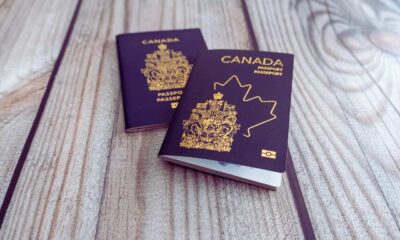Immigration Announcement
Introduction to Recently Passed Bill C-19 in Canada

On June 23, 2022, Bill C-19 secured royal assent, a significant development for Express Entry applicants all across the world. Canadian government experienced the biggest changes to Express Entry since the application management system was implemented in January 2015. As a result, the current Express Entry System has undergone significant modifications due to Bill C-19.
What is Bill C-19 All About?
Canada’s recently passed Bill C-19 has amended the Immigration Refugee Protection Act (IRPA) and introduced big changes to the current Express Entry system. According to Bill C-19, IRCC will have more power to select candidates from the Canadian Express Entry pool if they meet certain criteria that meet the country’s economic needs.
Canada’s Express Entry Selection Process Before Bill C-19
In order to evaluate the effects of Bill C-19, it’s crucial to comprehend how Express Entry operated before the change. Earlier, the Express Entry application system’s focus was on skilled worker immigration as its biggest benefit.
All skilled workers had to create an Express Entry profile. They received scores based on certain criteria, including employment experience, language proficiency, educational background, capacity to adjust in Canada, and other factors.
After that, they received a Comprehensive Ranking System (CRS) score, which served as the foundation for issuing invitations to apply for permanent residence to talented professionals. This system was excellent since it ensured that all applicants would receive objective evaluations and rankings.
What is the Effect of Bill C-19 on Express Entry?
Canada’s recently passed Bill C-19 has amended the Immigration Refugee Protection Act (IRPA) and introduced big changes to the current Express Entry system. Candidates are to be invited based on “groupings” that the immigration minister has established.
The groupings will be created based on a current economic objective that they hope to assist. The minister will subsequently post the eligibility requirements and economic targets for each round on the IRCC website. Now, It enables Immigration, Refugees and Citizenship Canada (IRCC) to invite foreign skilled people to apply based on their profession, language, and other arbitrary criteria.
It is legal for IRCC to grant ITAs based on a worker’s occupation, language ability, intended country of residence, or any other skilled worker category that advances Canada’s economic objectives. This bill just grants the IRCC the legal right to send invites based on particular arbitrary criteria. This enables Canada to guarantee that the chosen individuals possess the necessary educational background and/or marketable abilities. This law establishes a crucial balance.
Canada Held Express Entry Draws in 2023
Canada held Express Entry draws for two consecutive weeks. IRCC has now already invited 11,000 Express Entry candidates in 2023, which is the quickest start to Express Entry ever. On January 11, IRCC held a draw in which it invited 5,500 candidates. In the second draw, IRCC sent out invitations to 5,500 candidates with a minimum Comprehensive Ranking System (CRS) score of 490. The CRS cut-off score decreased by 17 points between draws, falling to 507 for last week’s draw.


























